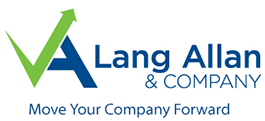Managing cash flow is one of the biggest challenges for contractors in the construction industry. Whether you’re a small or large construction firm, you need to have a solid understanding of your cash flow situation in order to make informed business decisions and stay financially stable.
That’s where construction accounting comes in. Proper accounting practices can help you manage your cash flow and ensure that you have enough cash on hand to cover expenses and invest in growth opportunities.
Construction Accounting Tips
Here are some key ways that construction accounting can help you manage cash flow:
Accurate Recordkeeping
One of the most important functions of construction accounting is to keep accurate records of all financial transactions. This includes tracking income, expenses, and assets, as well as monitoring accounts receivable and payable.
By maintaining accurate records, you can get a clear picture of your current cash flow situation and make informed decisions about spending and investments. You can also identify areas where you may be overspending or missing out on opportunities to generate revenue.
Budgeting and Forecasting
Another important aspect of construction accounting is budgeting and forecasting. By creating a budget and regularly reviewing it, you can identify areas where you can cut costs or invest more in order to improve your cash flow.
Forecasting, on the other hand, allows you to anticipate potential cash flow issues and plan for them accordingly. By predicting cash inflows and outflows, you can make strategic decisions about when to take on new projects or invest in new equipment.
Monitoring Cash Flow
In order to effectively manage your cash flow, you need to monitor it regularly. This means keeping track of your cash balances, income, and expenses on a daily or weekly basis.
By monitoring your cash flow, you can identify potential issues early on and take corrective action before they become bigger problems. For example, if you notice that your accounts receivable are lagging, you may need to follow up with clients to ensure timely payment.
Managing Accounts Receivable
Accounts receivable are a key component of cash flow for contractors. It’s important to manage them effectively in order to ensure timely payment and avoid cash flow disruptions.
Construction accounting can help you manage accounts receivable by tracking invoices, following up with clients, and providing regular reports on the status of outstanding balances.
Cash Flow Forecasting
Finally, construction accounting can help you forecast your cash flow over time. By using historical data and current trends, you can predict how much cash you will have on hand in the coming weeks or months.
This allows you to plan ahead and make strategic decisions about spending and investments. For example, if you know that you will have a cash surplus in a few months, you may decide to invest in new equipment or take on a new project.
Effective construction accounting is essential for managing cash flow in the construction industry. By keeping accurate records, creating budgets and forecasts, monitoring cash flow, managing accounts receivable, and forecasting future cash flow, you can ensure financial stability and make informed business decisions.
Need Help?
Give us a call if you need help managing your cash flow. Not only do we manage it, but we also alert you to any changes or discrepancies we find to help move your company forward.
